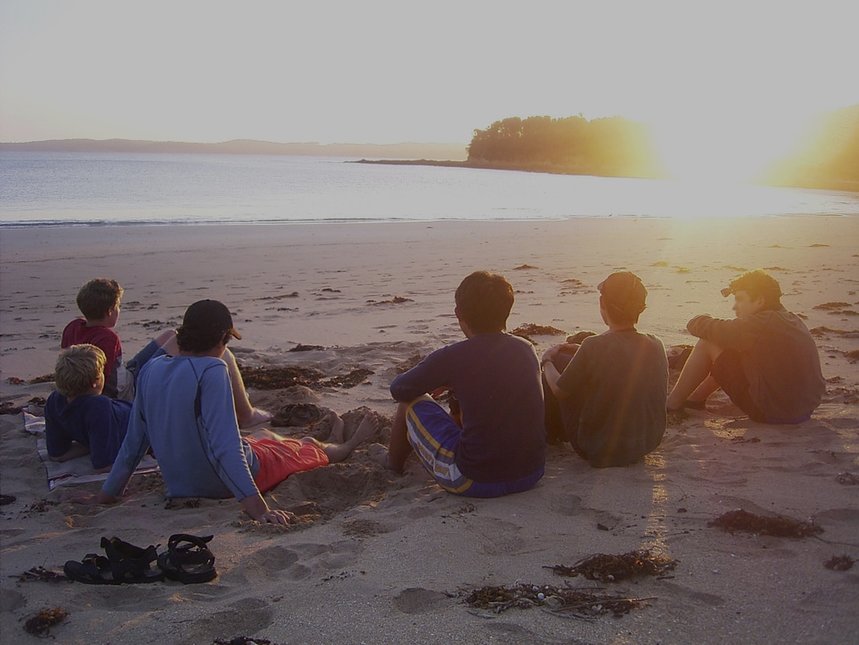|
The debrief is one of the most powerful teaching and learning tools you can use. However, it's either not used at all after a learning experience, or done poorly when the guide isn't sure what their objective is. For people who aren't familiar with the concept of the debrief, it's a post activity discussion that's designed to reflect on how everyone found the activity, how they might have been challenged by it and what they learnt from the experience. The aim is for everyone to be able to take a moment and self-reflect.
Once we can self-reflect, we can learn how to approach different situations in a more proactive manner and become far better equipped when faced with life's challenges. The first step of the debrief process is to make the debrief setting comfortable and confidential. Often participants are confronted with a weakness or a failure in an activity. It's not all going to be capable people saying how well they did and how amazing they are and if this is the way your debriefs go, you're either working with infallible people or you're not asking the right questions. It should be made clear that anything said within the debrief remains within the confines of the debrief. That way, there's the potential for an increased openness of the participants to share and potentially be vulnerable in the process. Next remove those who want to disrupt. This has rarely been an issue, but if it is, then you're better off without everyone. Some people will say the ones you remove are the most in need of debriefing skills. Maybe they are, but in my experience, they're usually the ones who have no idea and will just go through life disrupting everyone and everything they touch. I'm not here to suggest ways to save every single student. I am here to help those who are wanting to help themselves and who want to learn and grow from their experiences. Now for the biggest challenge: ask the right questions! This is a difficult one, as every activity and every group is different. However, as an experiential educator getting a feel for the dynamics of the group and how they've coped or not coped with the activity, can help shape your thinking. If everyone found the activity easy, I'm not going to go in with a question about facing challenges. Conversely, if the activity was really hard, I'm not going to shy away from the fact people were pushed. So what do you want to achieve with a question? Again this is critical, if you've got nothing in mind and you just need to do a debrief because you were told you had to, there's not going to be much reflection happening here. The activity, the question and the goal must therefore all be linked together. A fairly simple example of this is on one canoe trip, we were smashed with rain, like a massive amount of rain that was relentless. The conditions were not dangerous, just uncomfortable. The decision about to what to do was placed with the group. They wanted to leave the shelter we had under a rocky outcrop and continue. So we did! We pressed on for another hour to reach camp, then everyone had to work as a team to get tents setup and a fire going as quickly as possible. That evening around the fire, we talked about decision making and team work. Not everyone wanted to go on. Some were happy with the shelter, but the students made the decision and we supported it. When we posed the question about the decision making process, the students who made the decision in the end had felt nervous about it, because they didn't know if it were the right decision. This led into a more detailed group discussion on decision making. What's right? What's wrong? Why do we second guess ourselves? How should our decisions be guided? This discussion exposed some interesting group dynamics and it also showed how some were prepared to make decisions and take responsibility for the consequences. As one of them said, “Sure we got wet, but we made it to canoe safely and we’re not still stuck there under the rock.” Everyone was exhausted that night and we could have just gone to bed. If we had, the group would never have had the opportunity to reflect on the day and the way in which they made some very mature and proactive decisions that resulted in the best outcome possible for the group. Debriefs are a powerful learning tool and it's so important to both understand them and put them into practice for all your activities. The debrief shifts a ‘fun time’ doing an activity into a real learning experience, that provides huge educational value. The more you do this with your students, the more they will learn and grow as individuals.
0 Comments
Your comment will be posted after it is approved.
Leave a Reply. |
AuthorWrite something about yourself. No need to be fancy, just an overview. Archives
April 2021
Categories
All
|
Copyright Xcursion Pty Ltd 2015-2023


 RSS Feed
RSS Feed


